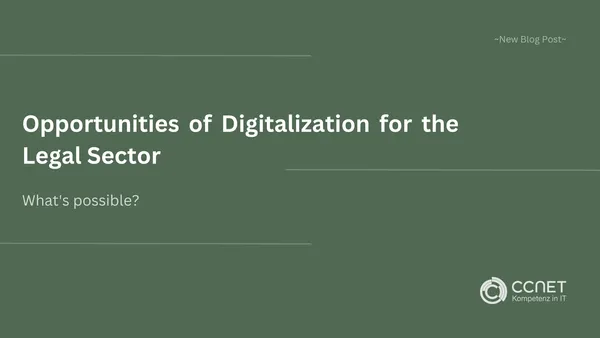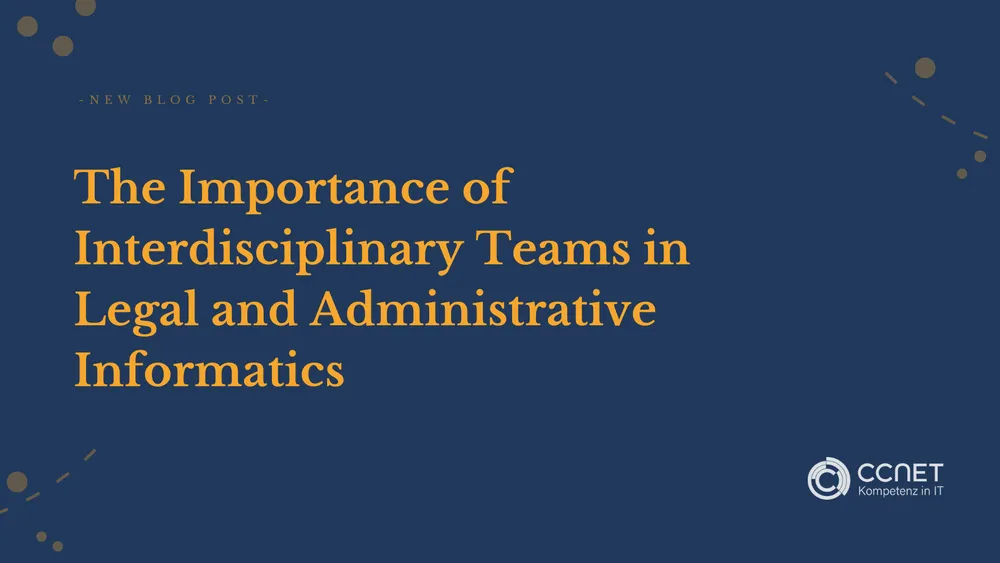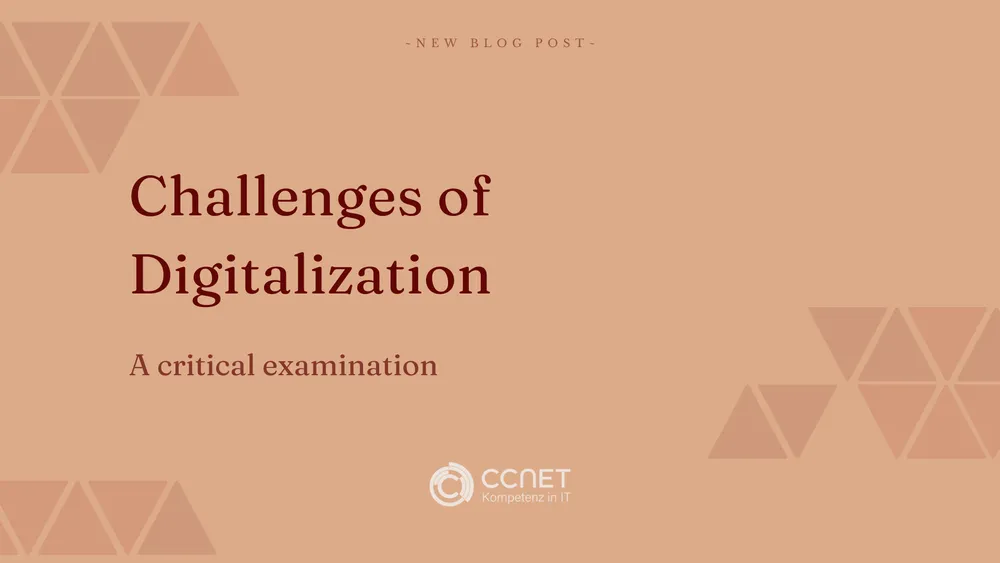
CCNet
Jul 5, 2024 • 3 min read

Opportunities of Digitalization for the Legal Sector: What's Possible?
The advancing digitalization offers significant opportunities for the legal sector, ranging from efficiency gains to improved access to justice for citizens. In this blog post, we will explore in detail the potential benefits of digitalization in the legal sector and its possible impact on various legal fields. We will also address the challenges associated with this digital transformation.
If you have any further questions, contact us: contact
Efficiency Gains Through Automation
A central aspect of digitalization in the legal sector is the automation of processes. This enables routine tasks to be automated, allowing legal practitioners to focus on more complex and valuable tasks. Recommendations for digitalization were discussed in the German Bundestag as early as the 1960s, but without comprehensive implementation, leading to ongoing challenges for digitalization and automation of administrative procedures. Nevertheless, automation in the legal sector is gaining momentum, opening new possibilities for efficiency and innovation. Therefore, it is crucial to continuously monitor and adapt the development and implementation of automated processes to fully realize the benefits of digitalization.
Improved Accessibility and Transparency
Digitalization has the potential to significantly improve accessibility to the legal system. Through online platforms and digital services, citizens can access legal services more easily and without geographical restrictions. This not only contributes to the promotion of democracy but also strengthens the rule of law by providing more transparent access to non-personal legal data and enabling broader participation in legal processes. Digitalization opens new avenues for a more inclusive legal system.
Innovative Technologies and Legal Tech
The introduction of new technologies such as blockchain and artificial intelligence provides innovative ways to improve legal documentation and automation. These technologies enable the secure and transparent documentation of legal fictions, circumstances, or data. They are especially useful in civil law and in digitally programmed contract closures (smart contracts), providing more efficient and reliable methods for legal documentation and automation. These advances indicate the potential for a fundamental transformation in the legal sector.
Challenges and Ethical Considerations
Despite the numerous advantages offered by digitalization, it is crucial to consider the associated challenges. These include not only issues of data security and personal data protection but also the ethical aspects that come into play when using AI systems. There is a risk that these technologies may undermine legal quality if not carefully implemented and monitored. Given this development, a comprehensive strategy is required.
Conclusion
Digitalization of the legal sector offers numerous opportunities to improve legal practice by increasing efficiency, enhancing accessibility, and enabling the implementation of new technologies that can modernize the legal sector. However, careful monitoring and regulation of these processes are essential to ensure that digitalization meets ethical and legal standards and strengthens trust in the legal system. In this sense, guidelines must be developed that allow a balanced use of technology and traditional processes to ensure that the principles of justice and the rule of law are upheld.
Which other topics related to digitalization in the legal domain would interest you? Would you like another blog post on this or a related topic?
How can digitalisation increase efficiency in the legal sector?
By automating routine tasks, legal practitioners can focus on more complex and valuable tasks, which increases efficiency. Automated processes enable faster processing and reduce the amount of work involved.
What innovative technologies are influencing legal documentation and automation?
Technologies such as blockchain and artificial intelligence (AI) offer innovative ways to document legal fictions, circumstances and data securely and transparently. These technologies are used particularly in civil law and smart contracts to improve legal documentation and automation.
What are the challenges of digitising the legal system?
Challenges include issues of data security, personal data protection and ethical concerns regarding the use of AI systems. Careful implementation and continuous monitoring are necessary to ensure the quality of the legal system.
How is data security ensured in digital legal services?
Data security must be ensured through robust protection mechanisms in order to strengthen citizens' trust in digital legal services. Data protection guidelines and security standards must be continuously adapted to ward off new threats.
How does digitalisation improve access to the legal system?
Online platforms and digital services make it much easier for citizens to access the legal system. This promotes broader participation in the legal process and contributes to strengthening democracy and the rule of law.
What role does legal tech play in the digitisation of the legal system?
Legal tech encompasses technologies that improve legal documentation and automation. These innovative tools offer more efficient and trustworthy methods for managing legal processes, particularly in the area of contract conclusion and legal documentation.
What future developments can be expected in the digital legal system?
Digital technologies such as blockchain and AI are expected to become further integrated into the legal system, leading to a fundamental transformation of legal documentation and automation. This will contribute to even more efficient and transparent legal administration.


